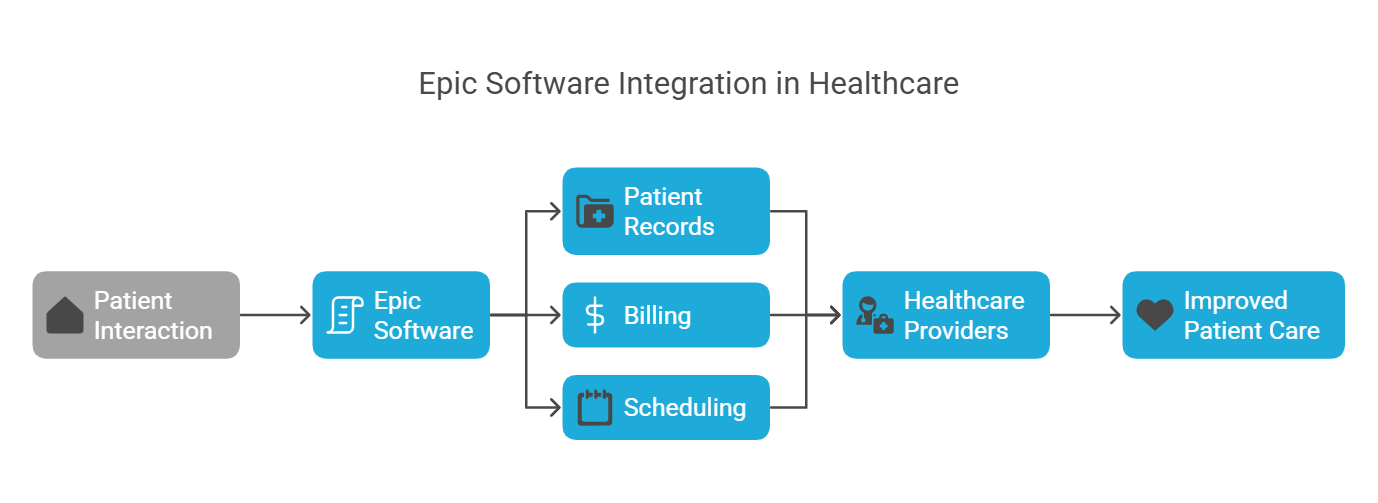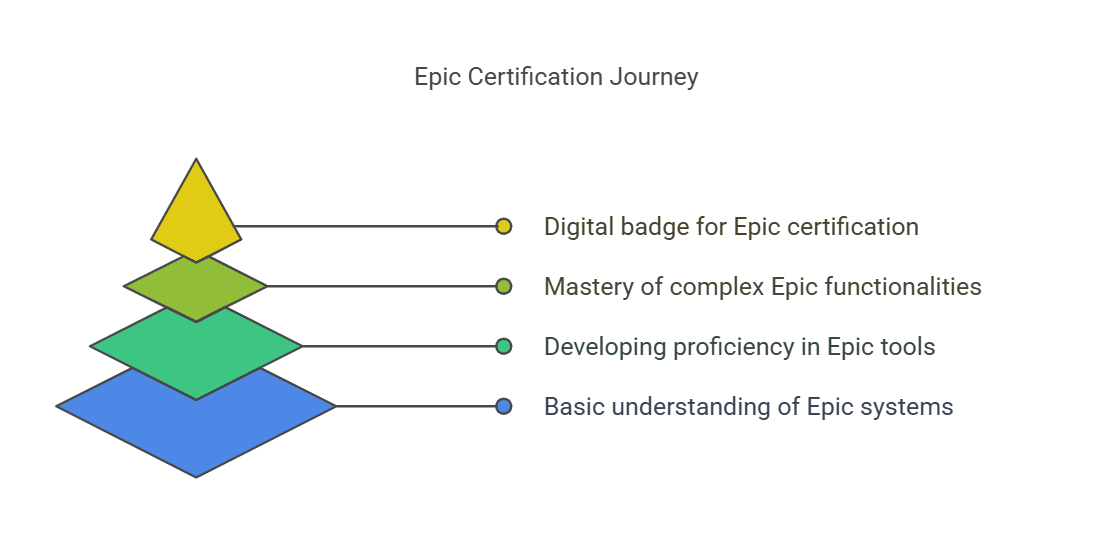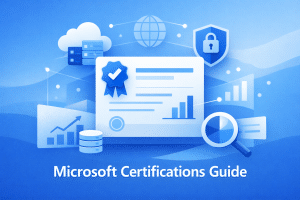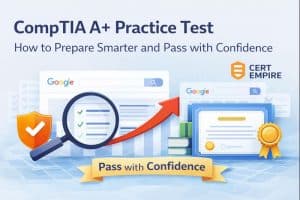If you’re navigating the world of Epic certification, one of the first questions you’ll probably ask is: How much does it cost? The truth is, that Epic certification cost isn’t just about money. It’s an investment—in your skills, future, and place in the rapidly growing healthcare industry. Whether you’re new to the field or already working in healthcare IT, this guide is your one-stop resource for understanding what you’ll pay, how to get certified, and why it matters more than ever.
Let’s break down the real cost, explore the Epic certification path, and help you decide if the journey is right for your career goals.
What Is Epic Certification?
Epic certification is the official process of becoming certified to use Epic Systems, a top-tier electronic health record (EHR) platform used by healthcare organizations across the globe. Think of it as getting your license to operate within one of the most important digital backbones in the healthcare industry today.
From managing patient records to streamlining hospital billing, Epic-certified professionals help healthcare systems deliver better patient care, boost healthcare efficiency, and support smooth healthcare operations.

Who Offers Epic Certification?
Unlike many tech certifications, Epic Systems Corporation controls the entire epic certification process. That means you can’t just sign up online and take a test. You need to be sponsored by a healthcare organization that uses Epic software systems or be hired directly by Epic Systems Corporation.
Once sponsored, you’ll gain access to official Epic training programs, training materials, virtual labs, and certification exams based on your job role.
How Much Does Epic Certification Cost?
Here’s the big question: what’s the real Epic certification cost?
There isn’t a flat fee listed publicly. Why? Because the cost is often covered by healthcare providers or employers. If you’re hired by an Epic Systems-using hospital or clinic, they usually sponsor your training—covering exam fees, training programs, and even travel for in person training at Epic’s headquarters in Verona, Wisconsin.
That said, if you’re exploring this independently (especially if you’re eyeing a job with a healthcare organization), it’s smart to understand the potential certification cost components:
| Certification Component | Estimated Cost (if not sponsored) |
|---|---|
| Training & Materials | $500 – $1,500 |
| Certification Exam Fees | $250 – $1,000 |
| Travel & Lodging (for in-person) | $500 – $2,000 |
| Time Investment (unpaid time) | Varies |
When not employer-sponsored, epic certification cost can climb into the $2,000–$5,000 range. However, many training providers now offer online or hybrid models, making them more accessible.
That said, if you’re exploring this independently, especially if you’re aiming to land a role with a healthcare organization, it’s important to understand the full picture of what you might pay out of pocket. From training providers to exam fees and in-person sessions, costs can add up quickly. To get a better idea of what to expect, you can explore detailed Epic certification cost and training options here.
Why Epic Certification Is Worth It
If you’re wondering about the epic certification’s worth, consider this: Epic certified professionals routinely earn competitive salaries, often higher than their noncertified counterparts. Certification also opens the door to career advancement, job opportunities, and professional development in one of the fastest-growing sectors: healthcare information technology.
Many employers seek Epic certified employees to lead implementations, manage upgrades, or support end-users across different modules of Epic software.
Exploring the Epic Certification Path
There are multiple ways to become epic certified, depending on your current role or desired position in a healthcare organization. Here are a few common tracks in the epic certification program:
1. Epic Application Coordinator
These professionals specialize in specific modules like EpicCare, Cupid, Beacon, and more. An Epic application coordinator handles configuration, testing, and go-lives.
2. Epic Analyst Certifications
Becoming an Epic analyst involves a deeper knowledge of backend systems, workflows, and data integration. This is a popular role for IT professionals transitioning into healthcare.
3. Epic Project Manager
With Epic project management certification, you’ll oversee full Epic implementations. Project managers must manage timelines, teams, training, and cross-departmental communication.
Each of these requires different certification exams, practice exams, and possibly different training providers.
Modules and Specialized Certifications
You don’t just get certified in “Epic.” You become certified in one or more of Epic’s specialized applications, including:
- EpicCare Ambulatory Certification
- Inpatient Orders
- Willow (Pharmacy)
- Radiant (Radiology)
- Resolute (Billing)
- Cupid (Cardiology)
Each of these has specific epic certification requirements, unique certification test formats, and hands-on training materials designed to match your role and responsibilities.
Epic Certification Roles & Associated Modules
| Role | Epic Module Examples | Focus Area |
|---|---|---|
| Epic Application Coordinator | EpicCare Ambulatory, Inpatient Orders | Workflow configuration & testing |
| Epic Analyst | Resolute (Billing), Willow (Pharmacy) | Data, backend, and reporting |
| Epic Project Manager | Varies (depends on project scope) | Implementation oversight & leadership |
| Epic Trainer | Ambulatory, Radiant (Radiology), Cupid | End-user education & support |
| Epic Consultant | Custom mix based on client needs | System optimization & upgrades |
Training Options for Epic Certification
Because of the nature of the Epic certification program, most training programs are customized and offered through Epic Systems Corporation or through a sponsored employer. Training often includes:
- Epic training programs (in-person or virtual)
- Virtual labs for hands on practice
- Online training materials
- Access to an Epic account for practice work
The training usually spans 2–4 weeks but can extend depending on your role and previous experience. Hands-on experience during this stage is essential for success on the certification test.

How to Get Epic Certified (Step-by-Step)
Here’s how to achieve Epic certification from scratch:
- Get hired by an Epic customer (hospital, clinic, or provider).
- Be nominated to attend training and take the epic certification exam.
- Complete your module’s official training programs.
- Study the provided training materials and complete practice exams.
- Take the certification exams.
- Pass, and become epic certified!
If you’re an independent IT pro or consultant, you’ll need to secure a role at a healthcare institution before beginning the epic certification process.
Epic Systems Certification: A Career Game Changer
There’s a reason why certified professionals are in such high demand. Being Epic certified sets you apart. You can work as:
- Epic analyst
- Epic application coordinator
- Epic project manager
- Epic consultant
- Healthcare IT specialist
These job roles are crucial to healthcare operations, and having the right certification can significantly boost your career growth and even open doors to higher salaries.
Continuing Education and Recertification
Like any professional credential, Epic certification isn’t a one-and-done deal. As Epic software evolves, certified users must stay up to date. This means participating in continuing education, refresher courses, or even retaking certification exams when major updates roll out.
How Epic Certification Impacts Healthcare
Let’s not forget the bigger picture. Epic Systems powers electronic health record platforms for thousands of healthcare organizations worldwide. That means Epic certified professionals help:
- Improve patient care
- Enhance healthcare efficiency
- Streamline healthcare operations
- Empower healthcare facilities with better tools
Your role as an Epic certified individual contributes to modernizing the healthcare system, one line of code—or one clean workflow—at a time.
Epic Certification: Tips for Success
Want to stand out as one of the top epic certified professionals? Follow these quick tips:
- Make the most of training materials and practice exams
- Gain exposure to Epic software systems early on
- Collaborate with experienced project managers during your training
- Use hands on experience in virtual labs
- Set your sights on long-term career advancement through specialized certifications
Epic Certification for Career Changers
Even if you’re not in healthcare IT yet, Epic certification can help you transition smoothly. Many former tech workers, teachers, and admin professionals have landed roles as Epic analysts, application coordinators, or certified professionals supporting healthcare providers.
With the right training providers and a willingness to learn, you can get Epic-certified and dive into a stable, meaningful career path in the healthcare industry.

Conclusion: Is Epic Certification Worth the Cost?
If you’re serious about working in healthcare information technology, Epic certification is more than just a resume booster. Yes, there’s a real epic certification cost—whether in time, money, or effort—but the payoff is substantial. From higher salaries to impactful patient care work, the value far outweighs the certification cost.
The journey to becoming epically certified may feel intense, but with the right guidance, solid training programs, and commitment to career goals, it can lead to a fulfilling and financially rewarding future.
So go ahead—get Epic, invest in yourself, and take that next step toward becoming an in-demand pro in Epic Systems. With the right tools from Cert Empire and a clear focus on certification, you’re already halfway there.


























